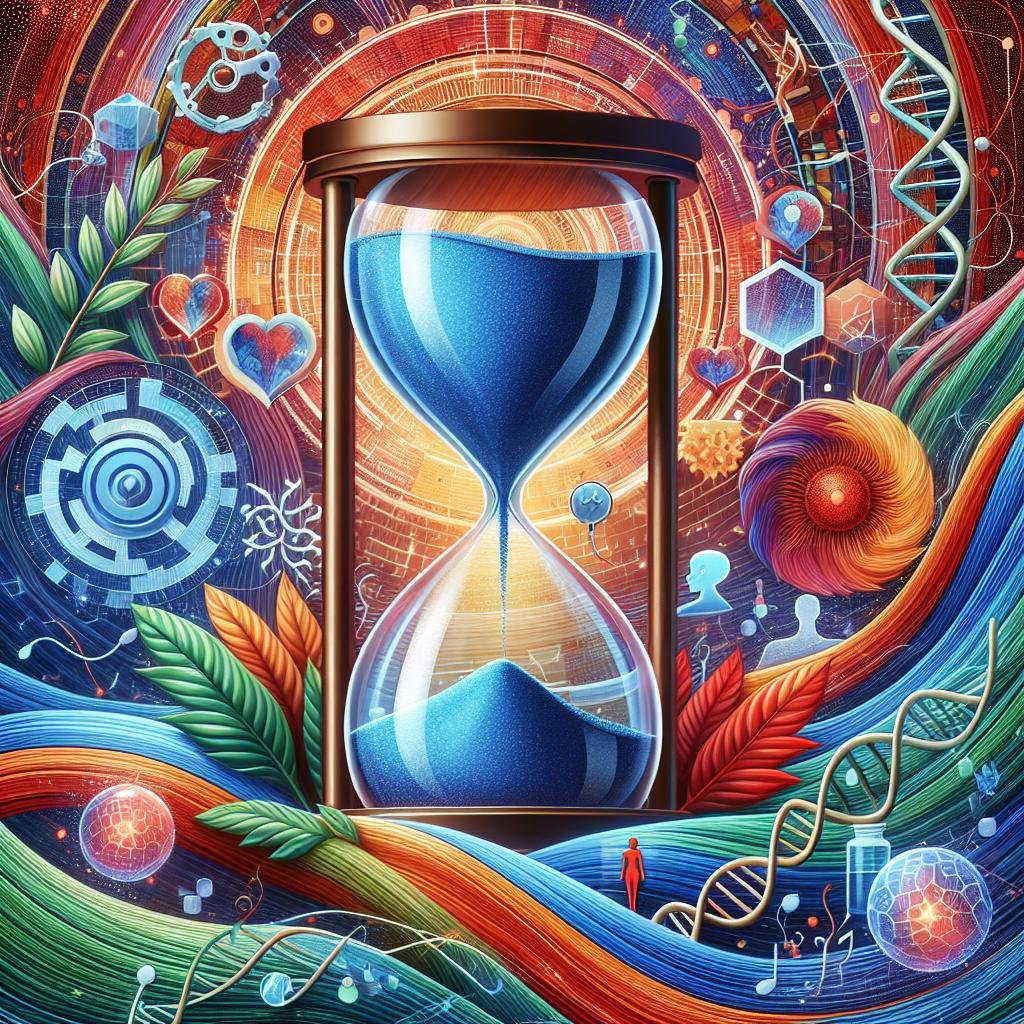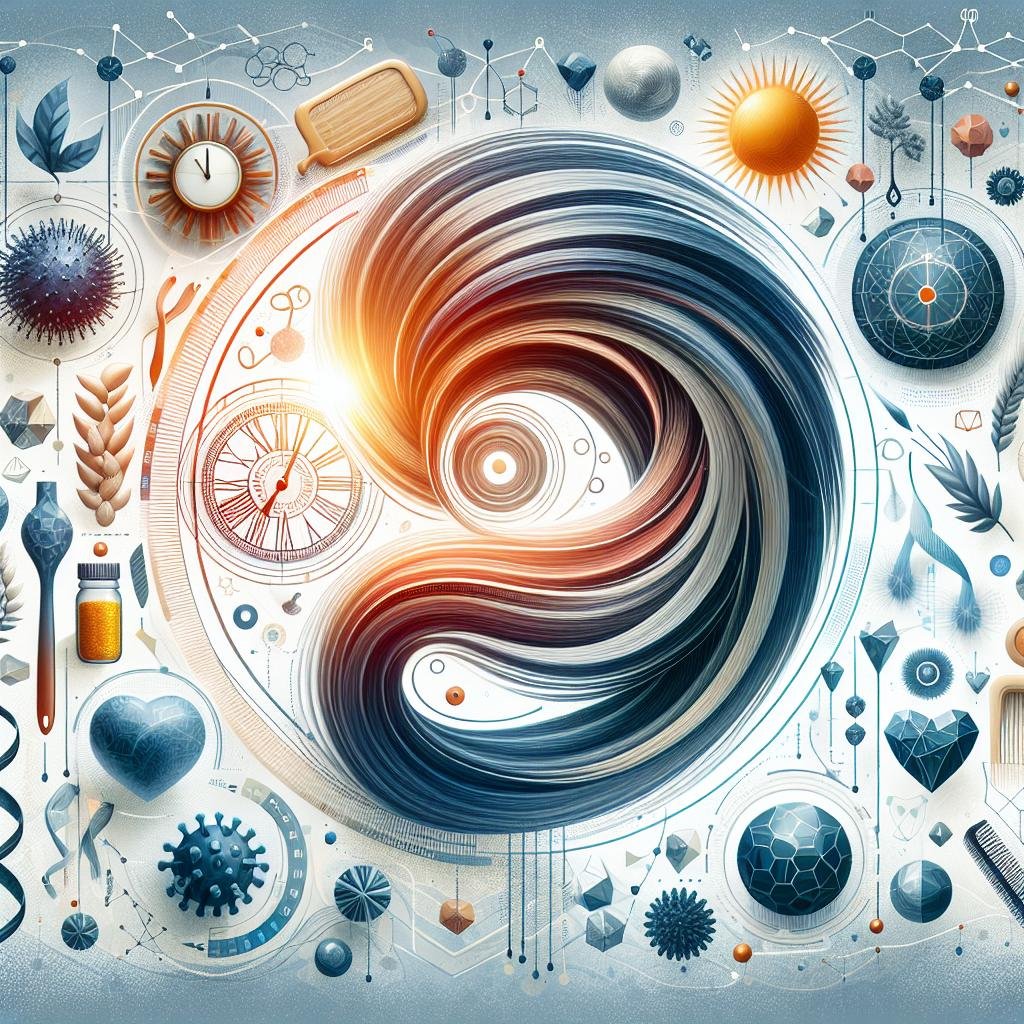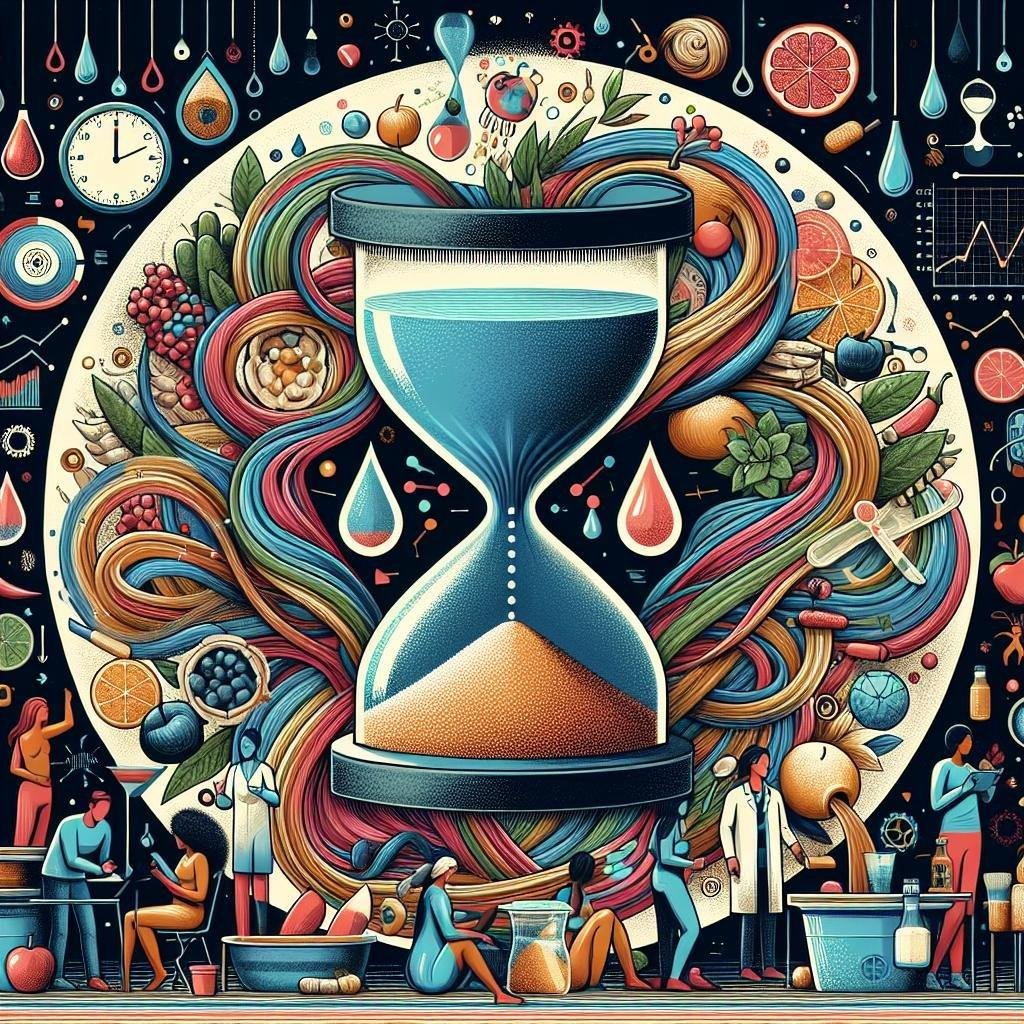In a world increasingly drawn to the allure of health trends, intermittent fasting has emerged as a star player, captivating the attention of many seeking to improve their well-being. This eating pattern, which alternates between periods of eating and fasting, has been lauded for its potential benefits on metabolism, weight management, and cellular repair. But as we navigate this intriguing terrain of nutrition, an often-overlooked question arises: can intermittent fasting influence our hair health? As countless individuals embark on their fasting journeys, armed with the hope of renewed vitality, it’s essential to explore the potential connections between this dietary approach and the luster of our locks. In this article, we will delve into the science behind intermittent fasting and its effects on hair health, examining whether this popular practice can indeed make a difference in the crowning glory of many—a topic that weaves together the threads of diet, biology, and beauty.
The Science Behind Intermittent Fasting and Its Impact on Hair Growth
Intermittent fasting (IF) has emerged as a popular dietary trend, but its effects extend beyond weight loss to various aspects of health, including hair growth. Research indicates that fasting may stimulate autophagy, a cellular cleansing process that eliminates damaged cells and promotes repair. This process can improve overall cellular function, potentially fostering a healthier environment for hair follicles. Moreover, the decrease in insulin levels during fasting periods can reduce inflammation, a known contributor to hair loss.
In addition to autophagy, intermittent fasting may influence hormonal balance, specifically by enhancing levels of human growth hormone (HGH) and brain-derived neurotrophic factor (BDNF). Elevated HGH levels can promote hair follicle regrowth and increase the size of hair follicles, while BDNF is crucial for maintaining the health of existing hair follicles. The following points encapsulate the relationship between intermittent fasting and hair health:
- Promotes autophagy: Cleanses and repairs damaged cells.
- Reduces inflammation: Aids in creating a conducive environment for hair growth.
- Balances hormones: Enhances HGH and BDNF levels beneficial for hair follicles.

Nutritional Considerations: Balancing Diet During Fasting Hours for Optimal Hair Health
During fasting hours, ensuring that your body receives the right nutrients during your eating window is paramount for sustaining optimal hair health. It’s essential to focus on foods that are rich in vitamins and minerals that nourish hair follicles and promote growth. Consider including:
- Protein-Rich Foods: Chicken, fish, legumes, and nuts to support keratin production.
- Healthy Fats: Avocados, olive oil, and seeds for scalp hydration.
- Vitamins A and C: Sweet potatoes and citrus fruits that help with sebum production.
- Biotin Sources: Eggs and whole grains to improve hair strength.
Additionally, incorporating specific food groups can greatly enhance your overall nutrient intake. Aim to create a balanced plate during meals by mixing diverse food types, and consider the following table as a guide to optimal choices:
| Food Group | Examples | Hair Benefits |
|---|---|---|
| Proteins | Chicken, Fish | Stronger strands |
| Fruits | Oranges, Berries | Rich in antioxidants |
| Vegetables | Spinach, Carrots | Boost health and vitality |
| Nuts & Seeds | Walnuts, Chia seeds | Promote hydration and shine |
Proper hydration is also essential; make sure to drink plenty of water throughout the day, especially before and after fasting periods. Foods that are high in omega-3 fatty acids can be valuable as well, providing the necessary moisture for hair follicles. By thoughtfully choosing foods during your eating windows, you can maximize the benefits of intermittent fasting for your hair health.

Exploring the Connection Between Hormonal Changes and Hair Loss in Fasting Individuals
Hormonal fluctuations play a crucial role in the relationship between fasting and hair health. During fasting periods, our body undergoes several metabolic changes that can affect hormone production. For instance, insulin levels typically drop, which might lead to the increase of other hormones such as growth hormone and testosterone. Although these hormonal adjustments can promote health benefits like improved metabolism and fat loss, they may also impact hair follicle cycles. The stress of metabolic shifts can lead to conditions like telogen effluvium, a temporary form of hair loss that often occurs when the body faces significant change.
Moreover, it’s essential to consider the nutritional aspect while fasting, as deficiencies can exacerbate hair thinning. When individuals fast, they might miss out on essential vitamins and minerals vital for maintaining healthy hair, such as:
- Biotin – essential for hair growth
- Iron - crucial for moving oxygen to hair cells
- Vitamin D – helps in follicle cycling
- Zinc – promotes healthy hair tissue growth
Considering these factors, it becomes evident that while intermittent fasting can have beneficial effects on overall health, monitoring hormonal changes and maintaining adequate nutrition is imperative to ensure it does not negatively impact hair integrity. Below is a brief representation of how fasting may influence these hormonal levels:
| Hormone | Effect During Fasting |
|---|---|
| Insulin | Decrease |
| Growth Hormone | Increase |
| Cortisol | Potentially Increase |
| Testosterone | Potential Fluctuation |

Practical Tips for Implementing Intermittent Fasting While Supporting Healthy Hair
Successfully incorporating intermittent fasting into your routine while prioritizing hair health involves mindful planning. Hydration is key; ensure you’re drinking sufficient water throughout your fasting periods to keep your body and scalp adequately hydrated. Furthermore, consider consuming nutrient-dense meals during your eating windows. Focus on foods rich in vitamins and minerals, such as:
- Leafy greens – packed with iron and vitamins A, C, and K
- Fatty fish – provides omega-3 fatty acids essential for scalp health
- Nuts and seeds – great sources of vitamin E and zinc
- Eggs - rich in biotin, crucial for hair growth
Another practical tip is to incorporate supplements that support hair health without compromising your fasting. Look for options that include collagen peptides, biotin, and folic acid, which can strengthen hair and encourage growth. Additionally, establishing a consistent routine that allows your body to adjust can greatly enhance the benefits of both intermittent fasting and optimal nutrition. Below is a simple table outlining a sample meal plan to combine fasting with hair-healthy eating:
| Meal | Foods |
|---|---|
| Breakfast | Smoothie with spinach, avocado, and almond milk |
| Lunch | Grilled salmon salad with mixed greens and nuts |
| Snack | Sliced apple with almond butter |
| Dinner | Quinoa with roasted vegetables and chickpeas |
Closing Remarks
In the intricate dance of health and wellness, intermittent fasting emerges as a captivating partner, influencing not just our waistlines but also the strands that crown our heads. As we unravel the connection between fasting and hair health, it becomes evident that while the benefits may vary from person to person, the journey is as much about exploration as it is about nourishment. Just as every hair follicle tells its own story, intermittent fasting can be a page in the book of our well-being.
As you consider incorporating intermittent fasting into your routine, remember that the key lies in balance and individual response. It’s essential to listen to your body, tailoring your approach to suit your unique needs. The quest for vibrant hair isn’t solely dependent on the clock but also intertwines with nutrition, lifestyle, and holistic practices.
whether intermittent fasting becomes a notable chapter in the narrative of your hair health or merely a footnote, the exploration of its effects can lead to greater awareness about how we treat ourselves—holistically, mindfully, and with care. So, embark on this journey with curiosity and courage, and may your path to health radiate, strand by strand.

